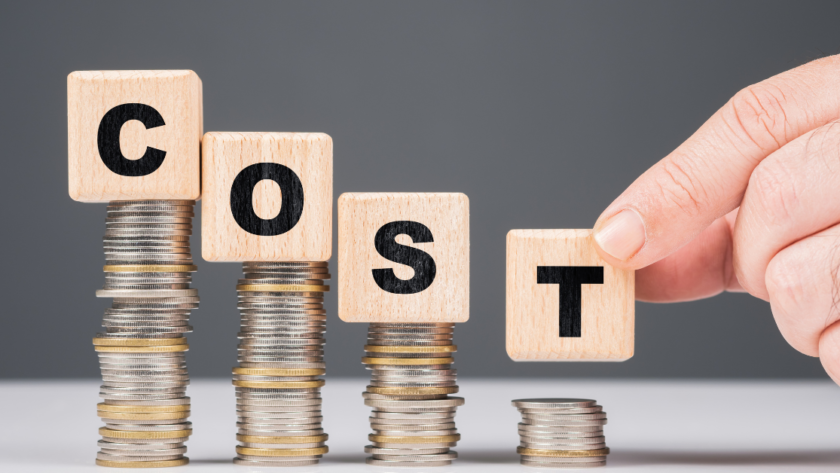As someone who’s been in the trenches of affiliate marketing for years, I’ve seen firsthand how the costs can vary wildly. When I first started, I was overwhelmed by the sheer number of expenses that seemed to pop up at every turn.
But over time, I’ve learned that starting an affiliate marketing business doesn’t have to break the bank.
In fact, with the right approach, you can get started with minimal investment and scale up as you grow.
The Bare Bones Budget: Starting from Zero
Believe it or not, it’s entirely possible to start affiliate marketing without spending a dime. When I was just starting out, flat broke but full of determination, I uncovered the power of free platforms and resources.
Leveraging Free Platforms
One of the first things I did was set up a blog on WordPress.com. It wasn’t fancy, but it gave me a place to start creating content and sharing affiliate links.
Social media platforms like Twitter, Instagram, and YouTube also became invaluable tools.
They cost nothing to use but provided a large audience for my content.
Free Tools for SEO and Content Creation
I quickly learned that SEO was crucial for getting organic traffic. Google Keyword Planner became my go-to for keyword research, while Yoast SEO (the free version) helped me improve my WordPress posts.
For content creation, I relied heavily on Canva’s free plan to create eye-catching graphics and Google Docs for writing and editing.
These tools might not have all the bells and whistles of their paid counterparts, but they got the job done.
The Realistic Startup Budget: $100 – $500
While starting with zero dollars is possible, investing a little bit of money can significantly speed up your progress. A budget of $100 to $500 can cover the essentials and give you a more professional setup.
Domain and Hosting: Your Online Real Estate
One of the first things I invested in was my own domain name and hosting. It cost me about $15 for the domain and $5 a month for hosting.
Having my own website instantly boosted my credibility and gave me more control over my content.
Basic Tools and Software
With the remaining budget, I invested in a few key tools:
- A simple WordPress theme ($59)
- A basic email marketing tool ($15/month)
- A beginner-friendly SEO tool ($30/month)
These investments might seem small, but they made a world of difference in my productivity and results.
The Hidden Costs: Time and Learning
The biggest cost in affiliate marketing isn’t always monetary. It’s time.
I spent countless hours learning about SEO, content creation, and marketing strategies.
While this didn’t cost me money directly, it was a significant investment.
The Learning Curve
Affiliate marketing needs understanding the nuances of different affiliate programs, creating content that converts, and driving traffic to your site. This learning process takes time and effort, but it’s essential for long-term success.
The Value of Persistence
There were many nights when I questioned if all this time and effort was worth it. But persistence is key.
The time I invested in learning and experimenting eventually paid off as I started to see my first commissions trickle in.
Scaling Up: When to Invest More
As my affiliate marketing business started to grow, I began to consider more significant investments. This is where things can get tricky – it’s tempting to throw money at every shiny new tool or course that promises to multiply your income.
Advanced Tools and Software
I gradually upgraded my tools as my income grew. I invested in more comprehensive SEO software, a premium email marketing platform, and tools for social media scheduling.
These upgrades cost me around $200-$300 per month, but they also significantly boosted my productivity and results.
Outsourcing and Delegation
One of the best investments I made was in outsourcing. I hired a virtual assistant to help with research and some content creation.
This cost me about $500 per month but freed up my time to focus on strategy and high-level tasks.
The Cost of Neglect: Legal and Compliance Considerations
Ignoring the legal side of affiliate marketing can be a costly mistake. It’s not the most exciting part of the business, but it’s crucial.
FTC Compliance
The Federal Trade Commission (FTC) has strict guidelines about disclosing affiliate relationships. Failing to comply can result in hefty fines.
I invested in a consultation with a lawyer specializing in online business to confirm I was following all the rules.
It cost me $300, but it was worth every penny for the peace of mind.
Privacy Policies and Terms of Service
Creating proper privacy policies and terms of service for my website was another legal necessity. I used a service that generated these documents for about $100.
It’s a small price to pay to protect yourself legally.
The Long-Term View: Ongoing Expenses
As your affiliate marketing business grows, it’s important to keep an eye on your ongoing expenses. These can creep up on you if you’re not careful.
Recurring Costs
Some of my ongoing expenses include:
- Domain and hosting renewals ($70/year)
- Software subscriptions ($200-$300/month)
- Content creation (varies, but around $500/month)
- Advertising budget ($200-$500/month)
These costs can add up, but they’re necessary for maintaining and growing the business.
Balancing Cost and Value
The key to managing the cost of affiliate marketing is to balance expenses with the value they bring to your business. I’ve learned to carefully assess each investment:
- Will this tool or resource significantly improve my productivity or results?
- Can I measure the return on investment?
- Is there a free or lower-cost choice that could work just as well?
By asking these questions, I’ve avoided many unnecessary expenses while still investing in the tools and resources that truly move the needle.
Pro Tip: Start Small, Reinvest Wisely
One of the best pieces of advice I can give is to start small and reinvest your earnings wisely. In the beginning, focus on free and low-cost options.
As you start earning commissions, strategically reinvest that money into tools and resources that will help you scale.
Successful affiliate marketing needs playing the long game. It’s about how wisely you invest your resources – both time and money.
While it’s possible to create all your content yourself, especially when starting out, you might eventually want to invest in professional content creation.
Writing Costs
If you decide to outsource your writing, costs can vary widely depending on the quality and experience of the writer. Here’s a rough breakdown:
- Basic content: $0.03 – $0.08 per word
- Intermediate content: $0.08 – $0.15 per word
- Expert content: $0.15 – $0.50+ per word
For a 1000-word article, you might pay anywhere from $30 to $500 or more. When I first started outsourcing content, I aimed for the middle range, paying about $0.10 per word.
This allowed me to get quality content without breaking the bank.
Video Production Costs
If you’re venturing into video content, costs can escalate quickly. Here’s what you might expect to pay:
- Basic equipment (camera, microphone, lighting): $500 – $1000
- Video editing software: $20 – $50 per month
- Professional video editing: $50 – $200 per minute of finished video
I started with just my smartphone and a $50 microphone, gradually upgrading as my channel grew.
Graphic Design Costs
Visual content can significantly boost engagement. Here are some typical costs:
- Stock photo subscriptions: $20 – $100 per month
- Graphic design tools (like Canva Pro): $10 – $30 per month
- Custom graphics from a designer: $20 – $100 per graphic
I found that investing in a Canva Pro subscription ($12.95/month) was a game-changer for creating professional-looking graphics quickly and affordably.
SEO Tools and Expenses
Search Engine Optimization (SEO) is crucial for driving organic traffic to your affiliate content. While there are free tools available, paid tools can provide more comprehensive data and features.
Keyword Research Tools
- Google Keyword Planner: Free
- Ahrefs: $99 – $999 per month
- SEMrush: $119.95 – $449.95 per month
- KWFinder: $29.90 – $79.90 per month
I started with the free Google Keyword Planner and gradually moved to KWFinder as my business grew. The $29.90/month plan was sufficient for my needs for quite a while.
On-Page SEO Tools
- Yoast SEO (WordPress plugin): Free – $89 per year
- RankMath: Free – $199 per year
- Surfer SEO: $59 – $199 per month
The free version of Yoast SEO served me well for a long time before I upgraded to the premium version.
Backlink Analysis Tools
- Moz Pro: $99 – $599 per month
- Majestic: $49.99 – $399.99 per month
- Ahrefs: $99 – $999 per month (includes keyword research)
I found that the backlink analysis features in Ahrefs were sufficient for my needs, so I didn’t invest in a separate tool for this.
Email Marketing Expenses
Email marketing is a powerful tool for nurturing your audience and promoting affiliate offers. Costs typically scale with the size of your email list.
Email Marketing Platforms
- MailChimp: Free for up to 2,000 subscribers, then $9.99 – $299+ per month
- ConvertKit: $29 – $79+ per month
- AWeber: $19 – $149+ per month
- GetResponse: $15 – $99+ per month
I started with MailChimp’s free plan and switched to ConvertKit when my list grew beyond 2,000 subscribers. The automation features in ConvertKit were worth the investment for me.
Affiliate Program and Network Fees
Some affiliate programs and networks charge fees to join or maintain membership. Here are some examples:
- Amazon Associates: Free to join
- ClickBank: Free to join, $49.95 activation fee for your first product
- ShareASale: Free to join
- CJ Affiliate: Free to join
- Rakuten Advertising: Free to join, but may need a least deposit
I primarily worked with free programs when starting out. As I grew, I found that the paid programs often offered higher commissions or better products, which offset the costs.
Website Hosting and Domain Costs
Having your own website is crucial for building a brand and having full control over your content. Here are some typical costs:
Domain Registration
- .com domains: $10 – $15 per year
- Specialty domains (.io, .co, etc.): $20 – $50+ per year
I always recommend registering your domain separately from your hosting for better control and portability.
Web Hosting
- Shared hosting: $3 – $10 per month
- VPS hosting: $20 – $100 per month
- Managed WordPress hosting: $30 – $200+ per month
I started with shared hosting from Bluehost at about $5/month. As my traffic grew, I upgraded to managed WordPress hosting with WP Engine at $30/month for better performance and security.
Advertising and Traffic Generation Costs
While organic traffic is ideal, paid advertising can help jumpstart your affiliate marketing efforts or scale your business faster.
Social Media Advertising
- Facebook/Instagram Ads: Minimum daily budget of $1, but $5 – $50 per day is more realistic
- Pinterest Ads: Minimum daily budget of $5
- Twitter Ads: No least, but $50 per day is recommended
I experimented with Facebook Ads, starting with a budget of $5 per day. It took some trial and error, but eventually, I was able to generate positive ROI.
Search Engine Marketing
- Google Ads: No least, but $10 – $50 per day is common for beginners
- Bing Ads: Minimum deposit of $5
I found Google Ads to be more competitive and expensive in my niche, so I focused on Bing Ads initially, which provided a good return on investment.
Education and Training Costs
Investing in your knowledge can significantly speed up your success in affiliate marketing. Here are some common education expenses:
Online Courses
- Udemy courses: $10 – $200 per course
- Specialized affiliate marketing courses: $500 – $2000+
I started with a few $10-$20 courses on Udemy to get the basics down. Later, I invested in a more comprehensive course for $997, which provided advanced strategies that helped me scale my business.
Books and E-books
- Kindle books: $5 – $20 each
- Physical books: $10 – $30 each
I built a small library of affiliate marketing books, spending about $200 over time. The knowledge gained was invaluable.
Conferences and Networking Events
- Virtual conferences: $0 – $500
- In-person conferences: $500 – $2000+ (including travel and accommodation)
While expensive, attending the Affiliate Summit conference ($1500 all-in) was a game-changer for me. The connections I made there led to several lucrative partnerships.
Productivity and Management Tools
As your affiliate marketing business grows, you’ll likely need tools to help manage your workflow and increase productivity.
Project Management Tools
- Trello: Free – $17.50 per user per month
- Asana: Free – $24.99 per user per month
- Monday.com: $8 – $16 per user per month
I found the free version of Trello sufficient for managing my content calendar and to-do lists.
Time Tracking and Productivity Tools
- RescueTime: Free – $12 per month
- Toggl: Free – $18 per user per month
- Forest App: $1.99 (one-time purchase)
RescueTime’s free version helped me understand where I was spending (or wasting) my time, allowing me to improve my workflow.
Analytics and Tracking Tools
Understanding your traffic and conversion data is crucial for optimizing your affiliate marketing efforts.
Web Analytics
- Google Analytics: Free
- Clicky: $9.99 – $79.99 per month
- Matomo: Self-hosted (free) or cloud-hosted ($19 – $399+ per month)
I primarily use the free Google Analytics, which provides more than enough data for most affiliate marketers.
Affiliate Link Management
- Pretty Links (WordPress plugin): Free – $99 per year
- ThirstyAffiliates: Free – $49 per year
- Geniuslink: $5 per month + 0.5% of clicks
I started with the free version of Pretty Links and later upgraded to the pro version ($49/year) for more advanced features and reporting.
Legal and Compliance Costs
Ensuring your affiliate marketing business is legally compliant is crucial. Here are some potential costs:
Business Registration
- LLC formation: $50 – $500 depending on your state
- Business licenses: Varies by location, typically $50 – $400
I formed an LLC for my affiliate marketing business, which cost me $125 in my state.
Legal Consultations
- Initial consultation with a lawyer: $100 – $400 per hour
- Ongoing legal services: $150 – $500 per hour
I spent $300 on an initial consultation to confirm I was compliant with FTC regulations and had proper disclosures on my site.
Privacy Policy and Terms of Service
- DIY using online templates: Free – $50
- Custom-drafted by a lawyer: $500 – $3000
I used a service called Termly to generate my initial privacy policy and terms of service for $10/month.
Scaling and Outsourcing Costs
As your affiliate marketing business grows, you might consider outsourcing certain tasks to free up your time for strategy and growth.
Virtual Assistants
- General VA: $3 – $10 per hour
- Specialized VA (e.g., for SEO or social media): $15 – $50+ per hour
I hired a part-time VA for 10 hours a week at $7/hour to help with research and basic content creation, which significantly increased my productivity.
Freelancers
- Content writers: $0.05 – $1+ per word
- Graphic designers: $25 – $150+ per hour
- Web developers: $50 – $200+ per hour
As my business grew, I started working with a freelance writer ($0.10/word) and a part-time graphic designer ($30/hour) to improve the quality and consistency of my content.
Key Takeaways
- Starting affiliate marketing can be done with minimal investment, utilizing free tools and platforms.
- A realistic startup budget of $100-$500 can provide a solid foundation for a more professional setup.
- The biggest initial investment is often time and learning, not money.
- As you grow, carefully assess which investments will provide the best ROI.
- Don’t neglect legal and compliance costs – they’re crucial for long-term success.
- Start small and reinvest your earnings wisely to scale your business.
- Ongoing expenses can add up, so regularly review and improve your costs.
- Investing in education and networking can provide valuable knowledge and connections.
- Consider outsourcing tasks as you scale to focus on high-level strategy and growth.
Frequently Asked Questions
How much money do I need to start affiliate marketing?
You can start affiliate marketing with no money by using free platforms and tools. However, a budget of $100-$500 can provide a more professional setup with a custom domain and basic tools.
What are the essential tools for affiliate marketing?
Essential tools for affiliate marketing include a website or blog platform, keyword research tools, email marketing software, and analytics tools. Many of these have free options available for beginners.
Is it possible to do affiliate marketing without a website?
Yes, it’s possible to do affiliate marketing without a website by using social media platforms, YouTube, or email marketing. However, having your own website gives you more control and credibility.
How long does it take to make money with affiliate marketing?
The time it takes to make money with affiliate marketing varies greatly. Some people may see their first commission within a few weeks, while for others it may take several months.
Consistent effort and learning are key factors in success.
What are the ongoing costs of running an affiliate marketing business?
Ongoing costs can include website hosting, domain renewal, email marketing software, content creation, and advertising. These can range from $50 to $1000+ per month depending on the scale of your business.
Do I need to pay taxes on affiliate marketing income?
Yes, affiliate marketing income is taxable. You should keep track of your earnings and expenses and ask with a tax professional to confirm you’re complying with tax laws in your jurisdiction.
What’s the most expensive part of starting an affiliate marketing business?
For many, the most expensive part of starting an affiliate marketing business is investing in education and tools. However, the biggest investment is often time spent learning and creating content.
Can I start affiliate marketing as a side hustle?
Absolutely! Many successful affiliate marketers start as a side hustle while working a full-time job.
It’s a flexible business model that allows you to scale at your own pace.
What’s the difference between free and paid affiliate programs?
Free affiliate programs don’t charge you to join, while paid programs may have membership fees. Paid programs often offer higher commissions or more exclusive products, which can offset the cost for established marketers.
How much should I budget for advertising as a beginner affiliate marketer?
As a beginner, it’s wise to start with a small advertising budget, perhaps $5-$10 per day, to test different platforms and strategies. You can increase this as you learn what works best for your niche.




